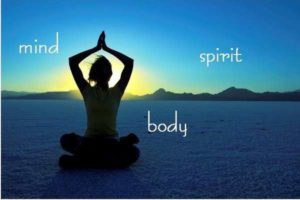What is Right & What is Wrong?
Navigating through life’s moral dilemmas.

Morality is an invention of the weak to neutralize the strength of the strong
– Callicles (in Plato’s Gorgias)
The author does not believe in most moral absolutes. What is right and what is wrong, in most cases, is a very personal choice based on the doer’s personal value system and understanding of the context. One man’s right is often the other man’s wrong. An (imperfect) rule of the thumb maybe ‘if something gives me happiness, and does not directly make anyone else unhappy’, it is generally okay to pursue. The author also does not find anything wrong per se in living a life of pleasure, as long as one does not hurt others, does not lose sight of the larger spirituality and the doer is intellectually strong enough to not suffer guilty pangs later on.
Is lying wrong? Most societies and religions put a premium on ‘being truthful’, so does truth become a moral absolute? Let’s consider the famous Nazi dilemma: we are protecting some Jew friends and Nazi soldiers knock and ask if we have any Jew inside. Do we tell the truth knowing that this truth will cost some people their lives, or do we lie (and ‘fraud’ the legal authorities) because the moral imperative to save lives is higher than speaking truth? Most of us would prefer lying, and I would too. But see, we used our personal judgment, and personal value system to decide what was right, and in doing so, went against the behavior the then society or legal system expected of us. How can lying then ‘always be wrong’?
How did morality develop? Why did some things become ‘right’ and some others – often even very natural urges – become ‘wrong’? Biologists point to the mammalian practice of group living, which made overall survival for the species easier in an otherwise dangerous planet. Over hundreds of years, this living in groups necessitated some social rules that could protect the group against internal conflicts and ensure stability of the population. Morality then became an invention of the group to deter people that would go against the group. “Don’t cheat, steal or lie. Care for children and weak. Practice empathy and reciprocity. Avoid adultery and incest. Greatest good for the greatest numbers.”

What about killing? But we kill by the millions in every war, often in the name of protecting our national or religious honour. And in those times, all those who try to show reason and restraint are often branded traitors: Humanitarians and Pacifists (who believe that all violence is unjustifiable) like Nobel Laureate Bertrand Russel were ridiculed and actually sent to prison in the First World War. Governments continue to kill even today based on what the governments think is right. Iraq invaded Kuwait convinced that Kuwait deserved to be taught a lesson, and US invaded Iraq convinced that Iraq deserved to be taught a lesson. In the process thousands lost their lives. Who then decides which side is right? We often say: when two moral absolutes are in conflict, choose the higher one. But who decides which one is higher? For a jihadi, with his years of conditioning, protecting his religion’s honour is infinitely more important than a few lives. For an atheist like me, religion remains the opium of the masses and organized religion’s influence should be steadily reduced!
What about abortion or euthanasia – are these ‘killings’ justified? Many religious preachers say it is ‘god’s life’ and hence we can’t terminate it. But if God owns life, what about non-vegetarianism? Do animals not have the same rights as man? We invoke the ‘special status’ of humans or ‘survival of the fittest’ to justify slaughtering. But isn’t this another case of giving in to desires and then later rationalizing it? Right and wrong often becomes murky.
Is sex outside the hallowed institution of marriage all right? 50 years ago, people would be killed for it. With the new moral zeitgeist, and urban surveys that suggest 80 percent of girls have lost their virginity before turning 18, we are more accepting of it (still chiding our daughters to refrain from it, but rationalizing if our sons have done it… society’s moral rules are often a license for hypocrisy). I surveyed some of my female students: after spending late hours with your boy friend, your mother confronts you at home. What would you do? Most would lie and say they were with other girls or in a college project. The justification for this ‘little lie’ ranged from ‘it is not harming anyone’, to ‘mothers are from a different mindset and will not understand my feelings’, to ‘it is my life’ to ‘buying peace at home’. I then asked: Is it wrong for a husband to have an extra marital affair and lie about it to his wife? Most of the same respondents immediately said it was ‘obviously wrong’. But why is cheating our mother okay but not our spouse?
Osho had an interesting take on this whole morality. Every human being has temptations – and the same god who made the earth and us, gave us these temptations. However, society and religion very soon started putting curbs – recall the tongue-in-cheek quote ‘everything nice is illegal, immoral or unhealthy‘! Osho believed this was to make us ‘weak from the inside’. We will anyway have those temptations, but with years of conditioning that these are wrong, a part of us will also start disliking the other part of us. We will start feeling guilty about something which is very natural. And when we feel guilty, we feel weak. We will go to our religious leaders and our temples to seek forgiveness, to offer prayers and alms for salvation! For 200 years, Europeans believed in ‘indulgences’: giving cash to priests so that the sin of the giver can be absolved. And even now the most corrupt politicians and businessmen partake in multiple religious rituals to wash off their sins.
Why can’t we accept ourselves as we are: with our wonderful strengths, and also our very human failings? Surely we should improve – but we decide for ourselves what needs to be improved.
The moral police often label these as mere rationalizations – isn’t our mind adept at coming up with plausible post-facto justifications? I have commonly heard the quip, “Oh, but in the heart-of-their-heart, even they know they are wrong”. But we have to be careful in painting all justifications as shallow. The atheist who does not believe in god or the homosexual who does not find anything wrong in having a partner of the same gender do not know they are wrong. On the contrary, they know that conventional societal rules are wrong and they may just happen to be too avant-garde for popular acceptance. Why can’t they – in their personal lives – follow what they think is right, without harming anyone else?

Krishna was perhaps the only god who showed us that a good life can co-exist with spirituality. This is a very different paradigm from the traditional religious dictums of austerity, suffering or repression of desires. There is no duality – we don’t have to suffer or repress in this world to be happy in the next world. We can be happy here, and happy in the afterworld (if the afterworld exists!). Spinoza explained this beautifully: If ‘living is desiring’, then ceasing to desire is in a way dying. Denying desire would be tantamount to denying our self assertion, our will to be. It is even impossible to want to suppress desiring. It would amount to a contradiction: to desire not to have any desires! Ascetic deprivation kills life and vitality.
So what am I saying? I believe in living on our own terms, doing what makes us happy. In most cases, the context and personal values – and not social and religious rules – would define what’s right for the doer. We need to move from a group morality to individual freedom, and do away with this excessive shackling of the human spirit.
Having said this, just like there is no moral absolute, there should also be no pleasure absolute. In line with the philosophy of this article, I would hesitate to provide ‘rules and principles’ since the final decision maker of right and wrong is the doer. I would still suggest there may be 5 pertinent questions that the doer may ask himself/herself to be doubly sure of the ‘rightness’ of the action:
- Are we directly harming someone else? Our right to live our way ends the moment we start trampling on others’ right to live their way. Any violence or use of force – at an individual level – is therefore unacceptable.

- Who is in control – we or our desires? When our desires take control, we become too weak to make a choice. Desires have a tendency to multiply, and very soon become unsatiable, rendering us in a perpetual state of seeking gratification. Desires also have a tendency to cloud our perspective, often tempting us to take risks where the costs may be astronomically high and irrational – public disgrace, divorce, ruined career, lifelong dreams shattered, even jail. The best way is often of balance and moderation, something between desire’s excesses and its repression. We choose our own balance, based on our personal value system.
- Do we have clarity on what is the larger purpose of life? While there is nothing wrong in enjoying per se, the purpose of life may be larger. After leading a life of pleasure, we will find that there is still a sense of emptiness, that despite all the gratification, something is still missing. It is a human’s inherent need to feel valuable: to make a contribution, to make an impact. Zorba must also discover his inner Buddha! We also need to distinguish between, as John Stuart Mill observed, higher pleasures (pleasures of the intellect, imagination, appreciation of beauty…) and lower pleasures (mere sensation). And often a blind pursuit of pleasure make us neglect our other responsibilities, and that comes back to bite us, making us more unhappy in the long run.
- Are we truly, deeply convinced we are right? When, deep inside us, we continue to think we are doing something wrong, we suffer a guilty conscious later on. Leading a self-directed life requires courage: it is critical to have a clear conscience despite social pressure. Either smoke or repent – no point in suffering with a guilty conscious after consummating the pleasure. Recall Plato’s rebuke in Republic: “the unjust person’s soul is chaotic and at war with itself, so that even if he were able to satisfy his desires, a lack of inner harmony and unity prevent the attainment of happiness. In this way, being moral is to be ultimately in a person’s own self-interest.” I would just add: a weak person’s soul (if there be a soul!) is chaotic, because he is himself not convinced what he just did was right. This is complicated: Ideally, we should not doubt the morality of our actions just because society or religion say so. But if we are still in doubt, don’t do it. Or else we will suffer like Hamlet did, “Tis better to be that which we destroy, than by destruction dwell in doubtful joy”.
So, like everything in life, it is about balance. And the right way to find this balance, this sense of right and wrong, is through personal experimentation and reflection. A socio-religious dictum (“do this because it is right, and do not question ‘the way’”) is too simplistic and pedantic, and I suspect will anyway not be followed by smart people. As Nobel Laureate Herman Hesse beautifully illustrated: Siddhartha, as a prince, enjoyed a life of luxury but still felt an emptiness and suffering. He analyzed, reflected, meditated, finally found The Truth and became the Buddha. He also then suggested The Noble Eightfold Path. However, not one of his followers, who tried to follow this noble path, actually became a Buddha!
“See, we need to find our own enlightenment… Experimenting, Observing, Reflecting and then forming our own ethical code.”
– Nishant Saxena
Case-let – The difficult question of adultery/cheating…
We may now be ready to consider that great taboo: Adultery, the waterloo of many a Clintons and Tiger Woods. Right and wrong becomes even hazier because of the obvious surge of temptations involved. All of us like to add to our happiness, even if it is a moment of pleasure. If what is right and what is in our interest coincide, there is no problem. But when what is societal right and what gives us pleasure are 180 degrees apart, there is a real problem.
In this case, the one big thing that is difficult to justify: when someone commits adultery, he (and it is usually a he!) is knowingly doing something that will cause a hurt to his loved one. How can this behavior (of hurting others) be justified?
The Harvard biologist Marc Hauser did an interesting ‘trolley experiment’. A trolley is coming down a track, and it’s going to run over and kill 5 people if it continues. You are standing next to the track and can flip a switch and turn the trolley onto a side track where 1 person is walking. So if you flip the switch, you will kill one but save the five. Most people said they would flip the switch, because it is morally permissible to harm one person when five are saved.
Now, the situation was changed slightly. There was no switch and no second track and you were watching the same trolley from above a bridge, and you could see that, unless stopped, the trolley would soon run over and kill the five people walking on the track. Near you, a fat man is also sitting on the bridge. The only option you have to save the five is to push the fat man in front of the trolley, thereby stopping it and saving the five people. However, the fat man dies in the process. What would you do?
Most people would not push the fat man and let the five people die, even though logically both scenarios present the same moral dilemma – killing one to save five. Why does this happen? Somewhere the direct action of killing someone is not acceptable morally, even though an indirect harm to the same person is acceptable. We can justify flipping the switch, since our direct intent was to save the five, and we did not directly want to kill the other man, he just happened to get killed in the process.
Directly causing harm is unacceptable, indirectly is often morally okay! This is often the ‘justification’ we have heard from cheating husbands – their direct intention was not to hurt the sentiments of the loved one, their direct intention was to enjoy life a little more in an otherwise stressful world.
Can the context of the married life (frequent fights with the partner, very little romance left, dull and drab middle ages with tired and spent faces) justify the action? What if the doer’s highest value – in true Zorba style – is: ‘living this one life to the fullest’, ‘drinking life to the lees’ – and so everything else is subordinate to it? Or as skeptics say – “Doing it is all right, everyone does it. Getting caught is what makes it wrong!”
I would again hesitate to pass any moral judgment or take a ‘holier-than-thou’ stand, but counsel the doer to carefully think through some pertinent questions:
- What about the guilty conscious deep inside our heart: can one really justify this cheating to oneself and carry a clean conscience? Or else the little pleasure now gives us more pain later. The weight of this guilt would also make us less fun to hang around with.
- Who is in control – is the cheating a rational well thought of choice, or our desires have made us too weak to exercise objective judgment. Have we really considered the very high long term risks – public disgrace, divorce etc – we are taking for a moment of pleasure? Remember also that temptations cloud our perspective, and often when we think we are taking a rational decision, we are not thinking straight and actually fooling even our own selves. Such ‘moments of truth’ – and our response to them – often define our outcome in life. Socrates would chide that a man of pleasure does not think straight because he cannot think straight.
- Can we continue to deliver on our more important priorities and responsibilities despite this distraction? The affair will become a bigger and bigger distraction, we will have less time for family and work and therefore important relationships and results will probably suffer. Have we truly accounted for this?
So, it needs to be a rational choice between the fleeting moment of pleasure and the long term consequences above.
Nietzsche, the famous critic of the hypocrisy within religion, in his brilliant book Genealogy of Morals, talks of the psychological origin of conscience: everyone has a will-to-power, a primal desire to inflict pain on others, which expresses a basic predatory human instinct. When this natural urge is suppressed by societal rules (that, in turn, are needed to make group living possible), we try to inflict pain on ourselves instead, through a guilty conscience. Religion often celebrates this suffering (e.g. Christ’s crucifixion or the chastity observed by priests).















 This information will never be shared with third party
This information will never be shared with third party